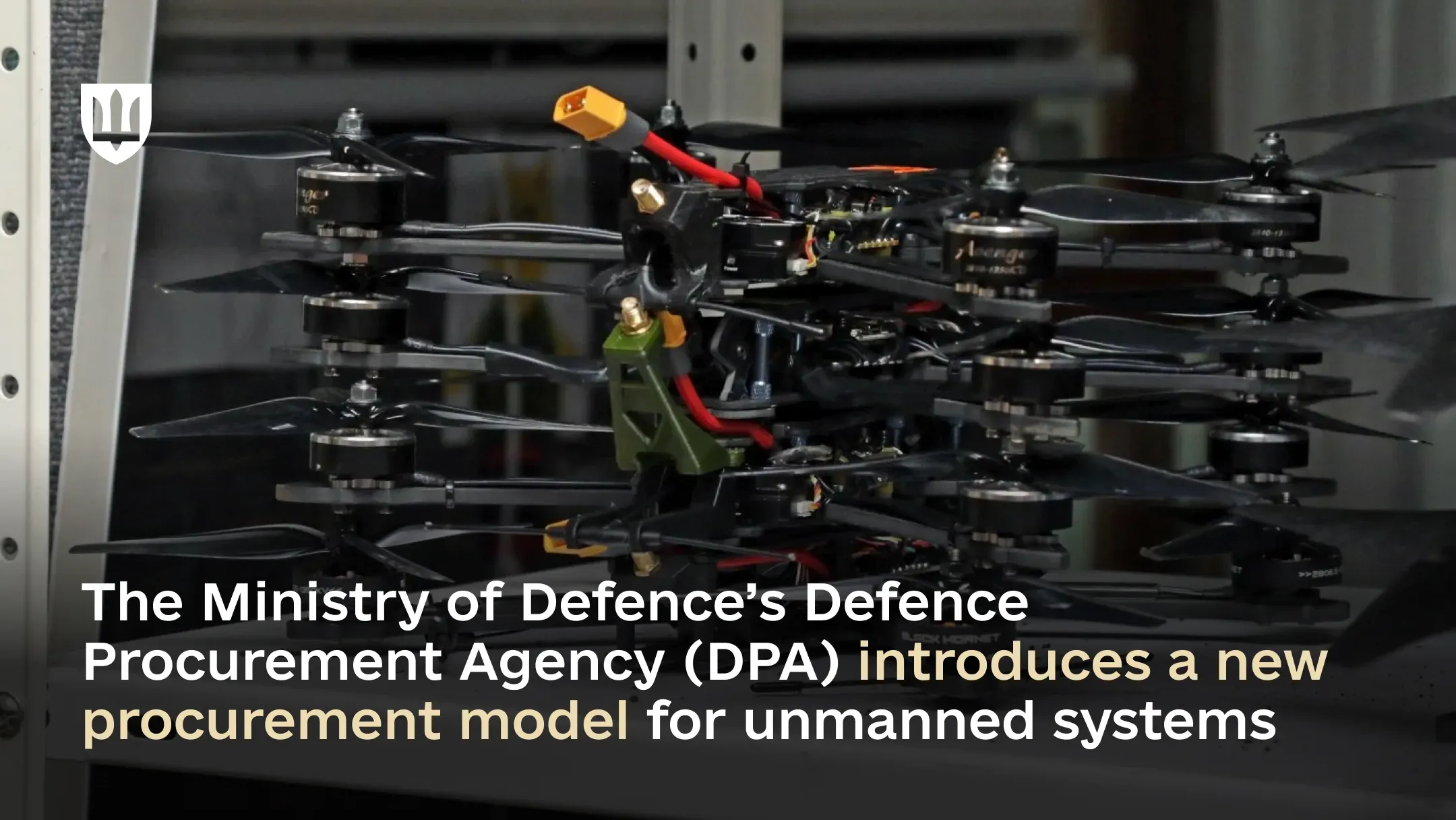The Ministry of Defence’s Defence Procurement Agency (DPA) introduces a new procurement model for unmanned systems

The Ministry of Defence’s Defence Procurement Agency (DPA) unveiled an updated procurement model for unmanned systems to manufacturers, aimed at equipping the Armed Forces of Ukraine. This model aims to promote the development of the domestic market by fostering a competitive environment, establishing clear rules, and enabling manufacturers to plan their production effectively.
Through this approach, the DPA intends to secure a predictable and efficient supply of assets to the Armed Forces of Ukraine while providing manufacturers and suppliers with enhanced clarity regarding the military’s demand and immediate requirements.
To achieve this, the Agency is developing alternative procurement and supply mechanisms. These will not only meet the military’s needs, particularly regarding their role in selecting systems, but also open the market to a broader range of manufacturers.
“Over 128 billion UAH has been allocated in the 2025 state budget for the Defence Procurement Agency’s drone procurement. We are changing our approach to ensure these funds are used efficiently: establishing clear rules for the market, providing predictability for manufacturers, and delivering tangible results for the military,” said Glib Kanievskyi, Director of the Procurement Policy Department at the Ministry of Defence of Ukraine.
The DPA will now engage with the market through the following mechanisms:
- Direct contracts – for the procurement of unique or specialized unmanned systems.
Given the strategic importance of procurements based on validated needs, the Agency will partially retain the existing approach, focusing primarily on the acquisition of unique and specialized drones.
- Framework agreements – competitive tenders based on tactical and technical specifications.
Drones with similar tactical and technical specifications will be grouped under framework agreements, starting with FPV drones. This will allow for competitive procurement involving a diverse pool of manufacturers.
- DOT-Chain Defence, a drone marketplace where military units can independently select the assets they need.
Military units will gain greater autonomy, moving away from exclusive reliance on centrally made decisions. Drone delivery times will also be reduced to just weeks.
“Through discussions with manufacturers and the military, we identified key barriers: opaque procedures, complex participation processes, and lack of dialogue. Accordingly, we have updated our approach by setting clear rules, streamlining the participation process, and ensuring predictability. This opens opportunities for the market to scale and for the state to quickly meet the AFU’s needs,” commented Arsen Zhumadilov, Director of the Defence Procurement Agency.
Key innovations include the verification of suppliers for direct contracts. The process helps to verify that companies meet fundamental criteria: no connections to russia, iran, or belarus, and adequate production capacity and financial health to execute contracts. Once verified, suppliers are added to a registry, reducing future verification times and enabling prompt receipt of commercial proposal requests from the DPA. This approach enables procurements to be quicker, more efficient, and more predictable for both parties.
All these processes are detailed in a step-by-step explainer available on the Agency’s website. It thoroughly details the supplier’s entire path – from codification and verification to contract signing. Additionally, the DPA held an open online meeting with market participants, attended by over 200 manufacturers and suppliers who had the opportunity to ask questions and offer suggestions.